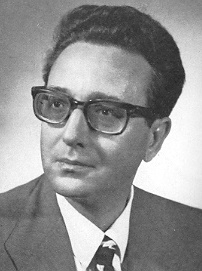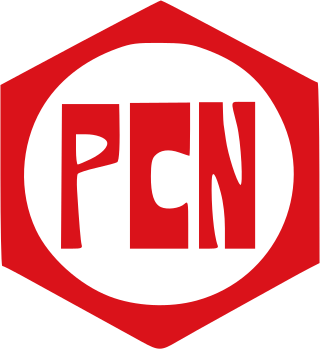Related Research Articles

National Alliance was a national conservative political party in Italy. It was the successor of the Italian Social Movement (MSI), a neo-fascist party founded in 1946 by former followers of Benito Mussolini that had moderated its policies over its last decades and finally distanced itself from its former ideology, a move known as post-fascismo, during a convention in Fiuggi by dissolving into the new party in 1995.
The National Rally, until 2018 known as the National Front, is a far-right political party in France. It is the largest parliamentary opposition group in the National Assembly and the party has seen its candidate reach the second round in the 2002, 2017 and 2022 presidential elections. It is an anti-immigration party, advocating significant cuts to legal immigration and protection of French identity, as well as stricter control of illegal immigration. It also advocates for a 'more balanced' and 'independent' French foreign policy by opposing French military intervention in Africa and by distancing France from the American sphere of influence by leaving NATO's integrated command. It supports reform of the European Union (EU) and its related organisations. It also supports economic interventionism and protectionism, and zero tolerance of breaches of law and order. The party has been accused of promoting xenophobia and antisemitism.
The National Democracy is a francophone Belgian far-right political party. The party advocated a strong unitary Belgian nationalism, strongly opposed immigration, and reached out to Flemish voters.
Roland Gaucher was the pseudonym of Roland Goguillot, a French far-right journalist and politician. One of the main thinkers of the French far-right, he had participated in Marcel Déat's fascist party Rassemblement National Populaire (RNP) under the Vichy regime. Sentenced to five years of prison for Collaborationism after the war, he then engaged in a career of journalism, while continuing political activism. One of the co-founders of the National Front (FN) in October 1972, he became a Member of the European Parliament (MEP) for the FN in 1986.
The Flag Group was a British far-right political party, formed from one of the two wings of the National Front in the 1980s. Formed in opposition to the Political Soldier wing of the Official National Front, it took its name from The Flag, a newspaper the followers of this faction formed after leaving and regrouping outside the main and diminishing rump of the rest of the party.
The Nouvelle Droite, sometimes shortened to the initialism ND, is a far-right political movement which emerged in France during the late 1960s. The Nouvelle Droite is at the origin of the wider European New Right (ENR). Various scholars of political science have argued that it is a form of fascism or neo-fascism, although the movement eschews these terms.

Giuseppe Umberto "Pino" Rauti was an Italian fascist and politician who was a leading figure on the radical right for many years. Involved in active politics since 1948, he was one of founders and, for many years, the leader of the Italian Social Movement (MSI). He was the main representative of the MSI's “moderates”.

Giorgio Almirante was an Italian politician who founded the neo-fascist Italian Social Movement, which he led until his retirement in 1987.

New Force was the name of a far-right political party in Spain founded by Blas Piñar, director of the Institute of Hispanic Culture and longtime procurador in the Cortes Españolas during the Francoist period. Originally operating as a publishing house, FN sought to preserve Francoism in Spain during the transition to democracy. After its dissolution as a political party in 1982, it continued to operate as a publishing house under the same name, and its political activities and stylings were succeeded by the National Front party.
The Front de la Jeunesse (FJ) was a Belgian private militia. It was founded in 1973 by members of one of the so-called NEM-Clubs, situated around the Nouvel Europe Magazine.

The Parti Communautaire National-Européen (PCN) is a Belgium-based political organisation led by Luc Michel, a former member of the neo-Nazi FANE party. A largely National Bolshevik movement, it also has activists in France.
The far-right tradition in France finds its origins in the Third Republic with Boulangism and the Dreyfus affair. The modern "far right" or radical right grew out of two separate events of 1889: the splitting off in the Socialist International of those who chose the nation and the culmination of the "Boulanger Affair", which championed the demands of the former Minister of War General Georges Boulanger. The Dreyfus affair provided one of the political division lines of France. Nationalism, which had been before the Dreyfus affair a left-wing and Republican ideology, turned after that to be a main trait of the right-wing and, moreover, of the far right. A new right emerged, and nationalism was reappropriated by the far-right who turned it into a form of ethnic nationalism, itself blended with anti-Semitism, xenophobia, anti-Protestantism and anti-Masonry. The Action française, first founded as a review, was the matrix of a new type of counter-revolutionary right-wing, and continues to exist today. During the interwar period, the Action française (AF) and its youth militia, the Camelots du Roi, were very active. Far right leagues organized riots.

Parti des forces nouvelles (PFN) or Party of New Forces was a French far-right political party formed in November 1974 from the Comité faire front, a group of anti-Jean-Marie Le Pen dissidents who had split from the National Front (FN).
The New European Order (NEO) was a neo-fascist, Europe-wide alliance set up in 1951 to promote pan-European nationalism. The NEO, led by René Binet and Gaston-Armand Amaudruz, was a more radical splinter group that broke away from the European Social Movement after denouncing their restrained program.
The far right in Switzerland was established in the course of the rise of fascism in Europe in the interwar period. It was a mostly marginal phenomenon in the Cold War period, excepting a surge of radical right-wing populism during the early 1970s, and it has again experienced growth alongside the right-wing Swiss People's Party since the 1990s.
Mark Fredriksen was a French extreme right figure and the founder, in 1966, of the neo-Nazi Fédération d'action nationaliste et européenne.

The Italian Social Movement was a neo-fascist political party in Italy. A far-right party, it presented itself until the 1990s as the defender of Italian fascism's legacy, and later moved towards national conservatism. In 1972, the Italian Democratic Party of Monarchist Unity was merged into the MSI and the party's official name was changed to Italian Social Movement – National Right.
Vincent Reynouard is a French Holocaust denier and proponent of neo-Nazism. He has been convicted and jailed in France under the Gayssot Act, which bars Holocaust denial.
Agir (Act) was a Belgian far-right political party active in Wallonia. The party existed from 1989 to 1997 and elected representatives at a provincial and municipal level.
François Brigneau was a French far-right journalist and author who was a leading figure in Ordre Nouveau, the National Front and the Party of New Forces.
References
- 1 2 3 4 Christopher T. Husbands, "Belgium: Flemish Legions on the March", Paul Hainsworth (ed.), The Extreme Right in Europe & the USA, Pinter, 1992, p. 133
- 1 2 3 4 5 6 7 8 9 10 11 Piero Ignazi, Extreme Right Parties in Western Europe, Oxford University Press, 2006, p. 128
- ↑ Elisabeth Carter, The Extreme Right in Western Europe: Success Or Failure?, Manchester University Press, 2005, p. 75
- ↑ R. Chiarini, 'The Movimento Sociale Italiano: A Historical Profile', L. Cheles, R. Ferguson & M. Vaughan, Neo-Fascism in Europe, Harlow: Longman, 1992, p. 38
- ↑ Carter, The Extreme Right in Western Europe, p. 59
- ↑ Carter, The Extreme Right in Western Europe, p. 33
- ↑ Husbands in Hainsworth, Extreme Right, p. 134
- ↑ Ignazi, Extreme Right Parties, p. 129
- ↑ Institute of Jewish Affairs, Antisemitism World Report 1994, Institute of Jewish Affairs, 1994, pp. 14-15